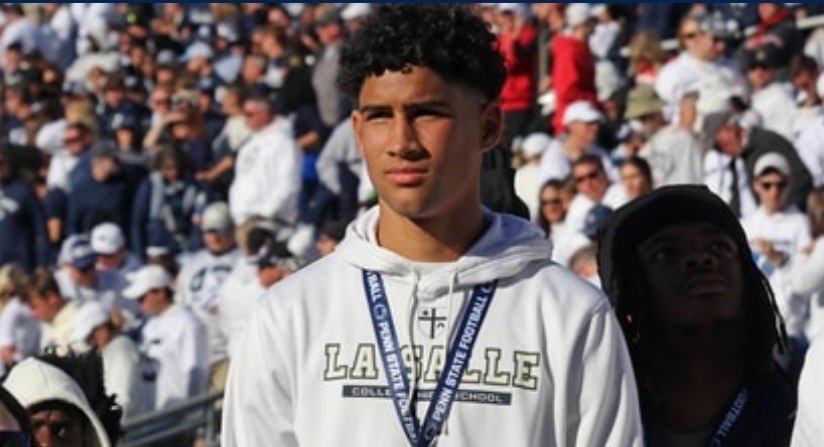Knoxville, TN – June 12, 2025 — In a decision that sent shockwaves across the college basketball landscape, a federal judge has denied former Tennessee Volunteers point guard Zakai Zeigler a fifth year of NCAA eligibility. The ruling, delivered by U.S. District Judge Katherine Crytzer, effectively blocks Zeigler from returning to play college basketball in the 2025–26 season, despite his claims that the NCAA’s rules violate federal antitrust laws and cost him potential NIL (Name, Image, and Likeness) earnings in the millions.
✍️ The Ruling
Judge Crytzer issued the decision Thursday in the Eastern District of Tennessee, denying Zeigler’s request for a preliminary injunction that would have allowed him to participate while the broader lawsuit continues. The 22-year-old guard had filed the suit in May, arguing that the NCAA’s “Four Seasons Rule”—which limits athletes to four years of competition within a five-year span—represents an unlawful restraint of trade and unfairly restricts student-athlete opportunity.
But in her ruling, Crytzer wrote that Zeigler failed to “present sufficient evidence” that the rule causes a significant anti-competitive impact in the student-athlete or NIL market. She also noted that Zeigler’s potential loss of NIL income did not meet the threshold to warrant an injunction because he could be compensated later through damages if the lawsuit succeeds.
“This case presents important and timely questions,” Judge Crytzer wrote, “but based on the current record, the plaintiff has not shown he is entitled to the extraordinary relief of a preliminary injunction.”
🏀 Zeigler’s Path: From Injury to Legal Fight
Zakai Zeigler, known for his tenacious defense and leadership, has been a fixture in Tennessee basketball since joining the team in 2021. He holds program records for career assists (747) and steals (251) and was twice named SEC Defensive Player of the Year. His on-court contributions helped the Volunteers consistently contend in the SEC and reach the NCAA Tournament.
Zeigler missed the conclusion of the 2022–23 season with a torn ACL but returned the next season, leading the Vols to a Sweet 16 appearance. Despite his comeback, Zeigler played in what the NCAA considers four full seasons, and the association ruled that he is ineligible for a fifth year, rejecting Tennessee’s waiver request earlier this year.
Zeigler’s legal team, led by attorneys from Litson PLLC and Garza Law Firm, claimed that the NCAA’s rule harms competition in the labor market for college athletes by limiting their earning windows under NIL. They argued that denying Zeigler a fifth year effectively stripped him of $2–4 million in NIL earnings, along with lost training, development, and exposure ahead of a potential pro career.
⚖️ NCAA’s Defense and the Court’s Reasoning
The NCAA pushed back, asserting that the Four Seasons Rule serves a legitimate interest in preserving eligibility standards and competitive balance. They further argued that NIL compensation is not controlled by the NCAA itself but by collectives, schools, and outside sponsors—meaning Zeigler’s financial grievances are not directly linked to association policy.
Judge Crytzer agreed with that assessment, stating that “the NCAA does not set or cap NIL payments” and “cannot be held responsible for speculative lost income.” The judge also emphasized that granting the injunction could cause “roster disruption” for college programs and unfairly disadvantage current and incoming players who rely on limited scholarship availability.
The court also dismissed Zeigler’s state law claims, ruling that Tennessee’s new Trade Practices Act, which targets anti-competitive practices in collegiate sports, does not authorize private lawsuits. This aspect of the ruling further narrows Zeigler’s legal path moving forward.
🗣️ Reaction from Zeigler’s Camp
After the ruling, Zeigler’s legal team issued a statement saying they were “disappointed but not deterred.”
> “This is just the first chapter in a case that raises critical questions about athlete rights, compensation, and control,” the attorneys said. “We remain confident in the merits of our claims and will continue to pursue justice for Zakai.”
Zeigler himself has not yet publicly commented on the ruling, but sources close to the player say he is considering both appealing the decision and exploring professional opportunities abroad or in the G League.
💥 Broader Implications for the NCAA
This case is the latest flashpoint in the ongoing battle over NCAA governance, athlete compensation, and eligibility restrictions. Legal analysts say the Zeigler lawsuit—though temporarily stalled—could reshape the landscape if successful.
“Zakai Zeigler’s case is a test of whether courts are willing to crack open the NCAA’s long-held grip on eligibility,” said sports law expert Daniel Greene. “It’s not just about one player. It’s about whether college athletes have a right to compete and earn under modern economic realities.”
In recent years, the NCAA has already been forced to abandon its ban on NIL compensation and faces mounting pressure from state legislatures, Congress, and ongoing lawsuits—including the House v. NCAA settlement, which proposes direct payments to athletes beginning in 2025.
Still, this ruling shows the NCAA’s core eligibility rules remain intact for now. Had Zeigler won, it could have opened the door for hundreds of athletes to seek fifth years, further complicating roster management, scholarship distribution, and competitive fairness.
🔮 What’s Next?
Zakai Zeigler’s attorneys have vowed to continue the fight, and a formal appeal to the Sixth Circuit Court of Appeals is expected in the coming weeks. Meanwhile, the full trial on the merits of the case is still pending and could take several months to resolve.
For now, unless a higher court intervenes, Zeigler’s NCAA career is officially over. He joins a growing list of athletes challenging the system—testing the boundaries of what it means to be a “student-athlete” in a post-NIL world.
—
Zakai Zeigler sues NCAA for fifth year, citing NIL losses – Reuters
Tennessee’s NIL Policy Overview – NCAA Resource Center



